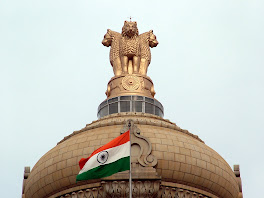* The technology is based on an International Telecommunication Union standard called IMT-2000.
* 3G phones work in higher bandwidths of 15-20 MHz, while currently available mobile phones are loosely regarded as 2G or 2.5G, and use 30-200 KHz bandwidth.
* Since the bandwidth for 3G is higher, it facilitates faster, better and simultaneous delivery of audio and non-audio data. 3G networks offer download speeds of 14.4 Mbits/second and uploads of 5.8 Mbits/second.
* Bandwidth is a measure of the width of a range of frequencies used while transferring data from one point to another, and is measured in hertz.
* While audio data is normally associated with telephone call, non-audio data comprise e-mail exchanges, instant messaging, and downloading information, all riding on the Internet.
* Now with 3G services telecom carriers will be able to provide video broadcast and other value-added services such as tele-medicine, mobile banking, stock transactions, e-learning etc, through wireless communications at a faster pace and with high quality.
* Various government services (e-governance) to the masses would be facilitated through the medium of mobile phone powered by a higher bandwidth of 3G.
* Acquiring 3G spectrum is expensive (Rs 1,600 crore for new licence holders according to the Telecom Regulatory Authority of India). So a telecom carrier would like to capitalise by ensuring widespread usage of mobile telephony.
* 3G services were first launched by NTT DoCoMo of Japan in October 2001, followed by Korea in January 2002.
* As of December 2007, 190 3G networks were operating in 40 countries.
* There are about 225 million 3G subscribers worldwide today।
Guidelines for 3G and broadband wireless access (BWA)services announced
A. Raja, Union Minister of Communications and Information Technology announced the detailed guidelines for 3G and BWA services laying down the road map for rolling out these services in the country on 1 August 2008.
With the introduction of these services, the quality of voice telephony will be improved as 3G spectrum would enable service providers to provide good quality services to a larger number of subscribers. Further, additional value added services will become widely available to the public. BWA services will ensure quick roll out and enhanced penetration of broadband especially in rural areas, where there is problem of last mile connectivity. It will facilitate availability of e-governance services like tele-medicine, e-medicine, e-ticketing, e-education etc, through broadband to the large section of rural population. Auctioning of 3G and Broadband spectrum will be done through e- auctioning by a specialized agency separately. New players would also be able to bid thus leading to technology innovation, more competition, faster roll out and ultimately greater choice for customers at competitive tariffs.



No comments:
Post a Comment